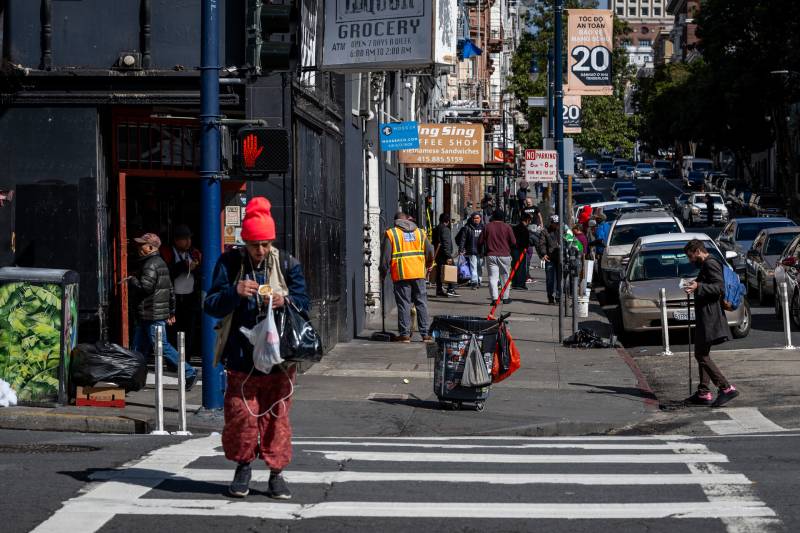Starlight Market, a 50-year-old convenience store on Ellis Street, is one of the stores that will be allowed to operate later under the amended ordinance. The market, owned by Ahmed and Mohammed El Barak, is usually open from 6 a.m. to 2 a.m.
Ahmed said that the hours of midnight to 2 a.m. are integral to Starlight’s business.
“This is the two hours when a lot of people finish their work, like in a restaurant, and they come get their food and they get last minute alcohol,” he told KQED. Having to close at midnight could destroy his business, Ahmed said.
Mohammed said that people also come to Starlight Market during the late night hours because it feels like a safer place to be.
“People say, ‘We come here to feel safe,’” Mohammed said. “Would you rather be in a dark spot or lit spot? If we have this enacted policy, it’s just going to get darker. Think of it that way. The homeless are still on the streets. Would that make them any safer?”
During the Land Use and Transportation Committee’s meeting on Monday, many residents and merchants spoke in support of the proposal, including representatives of a letter signed by more than 500 Tenderloin residents urging the board to approve the curfew. Some people were critical of the amendments, saying that the overnight closures should begin earlier than 2 a.m., while others said the discrepancy between when retail and liquor stores will be required to close was unfair.
Committee members Aaron Peskin, Myrna Melgar and Preston voted unanimously to forward the proposal with the amendments to the Board of Supervisors, and on Tuesday, the board approved the ordinance unanimously. The Land Use and Transportation Committee will revisit the original proposal on July 1 for additional amendments.
Once the ordinance is officially approved and enacted by Breed, food and retail shops within a four-by-five-block area will be subject to the curfew. Stores that operate during restricted hours could be fined up to $1,000 an hour by the Department of Public Health.
KQED’s Sara Hossaini and Juan Carlos Lara contributed to this report.

